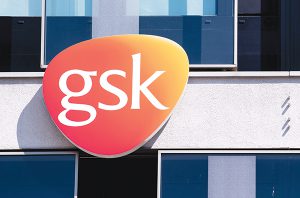There’s a UK mega-deal just waiting to happen. The difficult question for investors is how long that wait will be.
The consumer-healthcare business of GSK Plc will be a takeover target when it’s spun out of the drugmaker in July. Haleon, as the manufacturer of
Sensodyne toothpaste and Panadol painkillers is called, attracted a failed £50 billion ($62 billion) offer from consumer-goods giant Unilever Plc in December. Fending off another such approach will be a lot harder once it’s a separate London-listed company and directly accountable to its shareholders.
The field of suitors
has, however, narrowed. Unilever Chief Executive Officer Alan Jope would struggle to re-bid this year, as his investors opposed a deal in the first place. Procter & Gamble Co CEO Jon Moeller said in January he saw no need for a large acquisition; he’d need to make an artful case to change tack. And US drugmaker Johnson & Johnson is currently tied up in its own demerger.
Private equity firms have sniffed around, Bloomberg News reported. But financing a deal of this size looks tough today unless debt markets suddenly recover. Then there’s Nestle SA.
The Swiss confectioner mulled a bid in recent months, potentially in
partnership with UK peer Reckitt Benckiser Group Plc, but decided against it, Bloomberg News revealed last month. Buying Haleon outright would mark a
surprising shift from CEO Mark Schneider’s strategy.
That leaves the possibility of Reckitt leading a deal. Here, the strategic logic is obvious.
The Slough-based company is already a big player in consumer health. A combination with Haleon would leave it with a global portfolio of painkiller brands comprising Advil, Nurofen, Panadol and Voltaren. The digestive health business would span Nexium, Tums and Gaviscon. Reckitt would also enhance its know-how in making former prescribed treatments successful as over-the-counter medicines.
No wonder former Reckitt CEO Rakesh Kapoor considered buying Pfizer Inc’s consumer-health arm before it was put into a joint venture with GSK to form what’s become Haleon. The problem for GSK investors (the soon-to-be Haleon shareholders) is that his successor, Laxman Narasimhan, has no reason to rush a deal.
Haleon gains its independence at a difficult time. Being a newly listed stock with relatively unknown management sits ill with today’s risk-averse markets. Some analysts are cautious, penciling in organic sales growth at the low end of Haleon’s guided 4%-6% “medium term†range.
Moreover, hedge funds may see Haleon as a relatively low-risk stock to sell short. Both Pfizer and GSK plan to offload their residual stakes after the demerger. If the Haleon share price rose, they would probably sell some of their stock and the hedge funds could cover their short
positions.
Assume Haleon commands a valuation somewhere between Reckitt’s 14 times and P&G’s 16 times estimated 2023 earnings before interest, tax, depreciation and amortization, which Barclays Plc analysts put at £2.85 billion. It would trade with an equity value of roughly £30-£35 billion after deducting its £10 billion of net debt.
Yet Reckitt’s own market value is only £44 billion. That limits Narasimhan’s deal-making options. He could try an all-share merger with a small top-up, or with no premium at all. Instead of being cashed out with a big price, Haleon investors would share in the upside as the deal paid off over time.
Cost savings might be 5%-10% of Haleon’s revenue, based on past deals in this sector, implying a potential £1 billion boost to operating profit. Reckitt’s strength in creating premium versions of its remedies may boost sales too. Even having reset Reckitt’s margins on a lower and more sustainable level, the company is more profitable than Unilever and Nestle after adjusting for one-time charges.
But Haleon shareholders may prefer a straightforward takeover, seeing the Unilever proposal as the benchmark. So Narasimhan could instead rope in a partner and carve up the business. Nestle could take vitamins — the piece that probably triggered its interest — or Unilever oral care. Units such as ChapStick and denture care look prime disposal candidates.
The best course would probably be to sit tight, and hope that Haleon drifts and Reckitt outperforms over the coming months. Then Narasimhan could finish the clean-up job he’s doing, and let that boost Reckitt’s relative valuation so that he’d be in a stronger position to do a deal.
Narasimhan inherited a business that needed to invest in sales growth and fix its supply chain. He is gradually reshaping the portfolio, most recently divesting the Chinese infant nutrition unit. A full sale of the Mead Johnson baby formula business that Kapoor bought in 2017 could be a positive catalyst for the shares.
Of course, Narasimhan can’t wait forever. At
some stage, a rehabilitated Unilever, or J&J’s newly independent consumer-health business, could become rival suitors. But he can afford to pick his moment.
—Bloomberg
Andrea Felsted is a Bloomberg Opinion columnist covering consumer goods and the retail industry. Previously, she was a reporter for the Financial Times
Chris Hughes is a Bloomberg Opinion columnist covering deals. Previously, he worked for Reuters Breakingviews, the Financial Times and the Independent newspaper
 The Gulf Time Newspaper One of the finest business newspapers in the UAE brought to you by our professional writers and editors.
The Gulf Time Newspaper One of the finest business newspapers in the UAE brought to you by our professional writers and editors.
